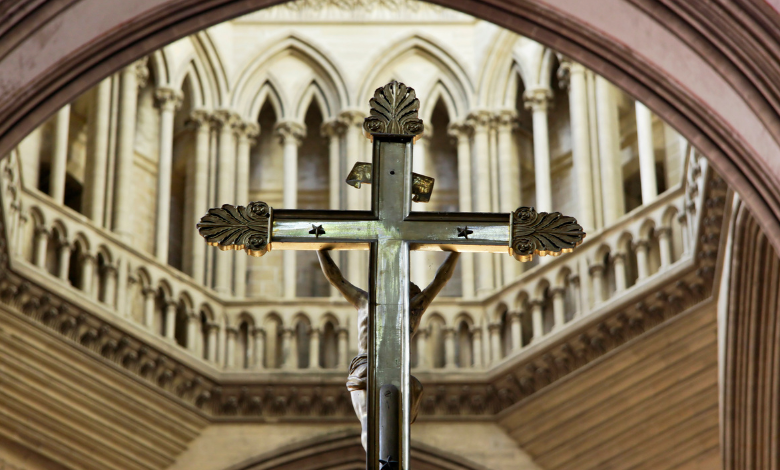Pere herve destres nomme exorcist par l eveque de coutances

In the realm of Catholic tradition, the role of an exorcist carries profound spiritual significance. Recently, the appointment of Père Hervé Destrés as an exorcist by the Bishop of Coutances marks a pivotal moment for the diocese and the larger Church. This designation revives one of the Church’s oldest traditions, where faith and spiritual protection are sought in the face of evil. This article explores Père Hervé Destrés’ appointment, the role of an exorcist in the Catholic Church, and the significance of this responsibility in contemporary religious practice.
The Role of an Exorcist in the Catholic Church
An exorcist is a priest specifically trained and appointed by the Church to perform rituals aimed at casting out evil spirits or demons from individuals believed to be possessed. While this role may seem mysterious to outsiders, it is deeply rooted in the Church’s teachings on spiritual warfare. The practice of exorcism can be traced back to the early Christian Church, with references in the Gospels where Jesus Christ exorcised demons from afflicted individuals.
The Catholic Church distinguishes between two types of exorcism: simple exorcism and solemn (or major) exorcism. Simple exorcism is performed during baptisms, where the priest prays for protection from evil. Solemn exorcism, on the other hand, involves addressing cases of demonic possession and requires careful discernment, knowledge of theology, and a deep sense of faith.
The Appointment of Père Hervé Destrés
In 2024, the Bishop of Coutances appointed Père Hervé Destrés as an exorcist for the diocese, a role that signifies a trust in his spiritual discernment, faith, and leadership. The appointment is both an honor and a responsibility, requiring Père Destrés to work with individuals who seek relief from spiritual oppression. While the role may evoke images of ancient practices, modern exorcism within the Catholic Church is approached with both caution and reverence.
Before performing an exorcism, thorough investigations are conducted to rule out psychological or medical conditions. The Church emphasizes that exorcisms are only performed when there is substantial evidence of a demonic presence. The process involves prayers, blessings, and invocations, calling upon the name of Jesus Christ to liberate the afflicted from spiritual torment.
Exorcism in Modern Society
Exorcism remains a sensitive and often misunderstood topic, especially in a secular world where the supernatural is frequently dismissed. However, the Catholic Church continues to recognize the reality of evil as a spiritual force and upholds the tradition of exorcism as a means of spiritual healing. The rise of interest in spiritual matters, coupled with an increasing awareness of mental health, has led to a nuanced approach to exorcism.
Père Hervé Destrés’ appointment is a testament to the Church’s belief in the enduring relevance of this ministry. While the number of cases requiring solemn exorcism may be rare, the Church remains vigilant, providing both pastoral care and spiritual protection to those in need.
The Training of an Exorcist
Becoming an exorcist involves rigorous theological education and practical training. The priest must have a profound understanding of the Rituale Romanum, the official manual for performing exorcisms, as well as a deep sense of empathy, humility, and courage. Exorcists often consult with medical professionals and psychologists to ensure that the individuals they serve are receiving appropriate care on all levels – spiritual, mental, and physical.
Père Hervé Destrés’ journey to becoming an exorcist likely involved years of pastoral experience, prayer, and discernment. His appointment by the Bishop of Coutances highlights his exceptional qualities as a spiritual leader trusted to navigate one of the most complex and sensitive ministries in the Church.
The Significance of Spiritual Warfare
In Catholic theology, the concept of spiritual warfare is central to the understanding of exorcism. The Church teaches that evil exists not only as a metaphor for human sin but also as a real, malevolent force that can influence individuals. Exorcists, like Père Hervé Destrés, are called to stand as spiritual warriors, using the power of faith, prayer, and the sacraments to protect the faithful from harm.
For many believers, the existence of evil forces is a reminder of the importance of spiritual vigilance. Père Destrés’ new role is a crucial part of the Church’s mission to defend and nurture the spiritual well-being of its members.
Conclusion
Père Hervé Destrés’ appointment as exorcist by the Bishop of Coutances is a profound recognition of his spiritual strength and commitment to the Catholic faith. While the role of exorcist is ancient, it remains relevant in addressing the deep spiritual needs of individuals facing extraordinary challenges. In modern times, the Church continues to offer exorcism as a form of healing, grounded in a careful discernment process and respect for human dignity.
As Père Destrés embarks on this sacred mission, he joins a long tradition of priests called to confront evil with faith, compassion, and the power of Christ’s name. His appointment underscores the Church’s enduring belief in the reality of spiritual warfare and the ongoing need for spiritual protection in the lives of the faithful.





